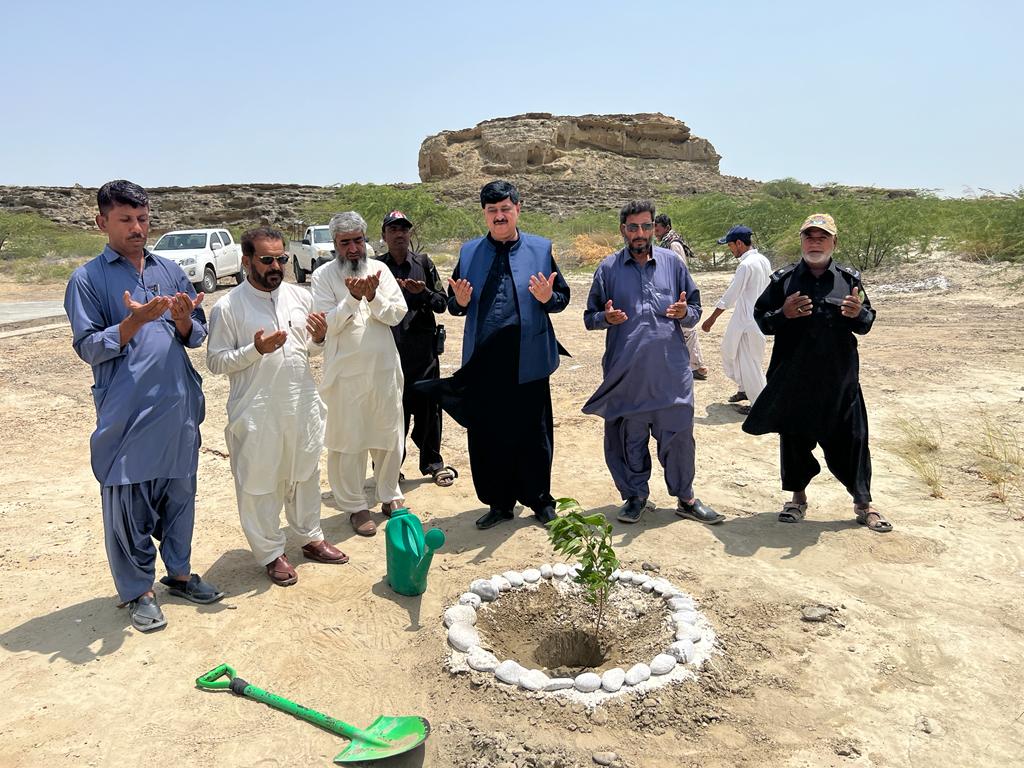The visit was conducted 31st August 2023 to 04th September 2023
Kalat Division:
- Forest Types: Kalat Division is characterized by a range of ecological zones, including arid regions and some mountainous areas. Forests in this division primarily consist of dry and sub-tropical forests.
- Tree Species: The division is home to various tree species, including Acacia, Tamarisk, and Prosopis, which are adapted to arid and semi-arid conditions. These species are essential for soil conservation and provide fodder for livestock.
- Challenges: Like many arid and semi-arid regions, Kalat Division faces challenges such as deforestation, habitat degradation, and unsustainable land use practices. Efforts by the Balochistan Forest & Wildlife Department and local communities aim to address these challenges through reforestation and sustainable management practices.
Makran Division:
- Ecological Diversity: Makran Division is known for its diverse landscapes, including coastal areas along the Arabian Sea and mountainous regions inland. The region’s ecology ranges from coastal mangroves to desert and semi-desert areas.
- Mangrove Forests: Along the coastal areas, particularly in places like Gwadar, there are significant mangrove forests. These mangroves are vital for coastal ecosystem health, providing breeding grounds for fish and protecting against coastal erosion.
- Desert Vegetation: Inland, Makran Division includes parts of the vast desert areas of Balochistan, where you’ll find desert vegetation adapted to arid conditions.
- Conservation Challenges: Conservation efforts in Makran Division are critical due to the fragile coastal ecosystems and threats from development projects, such as ports and infrastructure. Balochistan’s Forest & Wildlife Department has been involved in mangrove conservation and sustainable land management to address these issues.
- Biodiversity: The region’s biodiversity includes various wildlife species adapted to the arid and coastal environments, including birds, reptiles, and marine life. The department works to protect and conserve this unique biodiversity.
It’s important to recognize that Balochistan, including the Kalat and Makran divisions, faces challenges related to land degradation, climate change, and population pressures, which can impact its forest resources. The Balochistan Forest & Wildlife Department, along with local communities and national and international partners, continues to work on conserving and sustainably managing these valuable forest resources while addressing these challenges. Upscaling Green Pakistan Programme has played a vital role in the development of Forest Resources.
